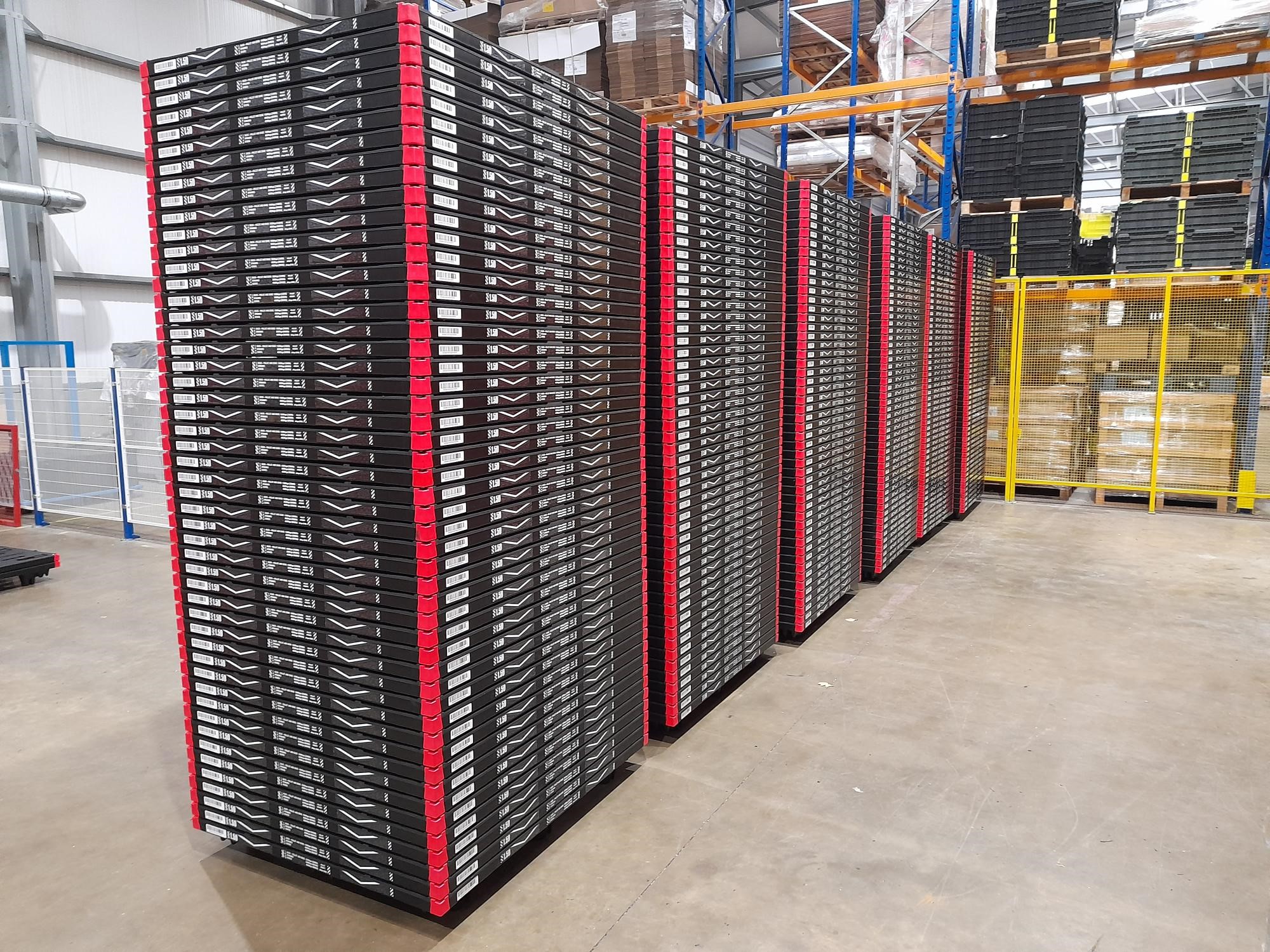Pallet Earth is New Zealand’s latest story of Kiwi innovation, taking on the world’s supply chain with its re-usable, repairable and recyclable pallet system.
Five years ago, they set out to change the way the world moves by challenging traditional pallets, an industry that has seen little change in over 70 years.
“In 2017 more trees were cut down in North America and Europe for pallets than any other purpose. With the majority used only once, they present a huge problem for our environment – filling up landfills, being chipped, destroyed or burned. All outcomes resulting in high levels of carbon being released into the atmosphere,” says Dave Cashmore – Pallet Earth’s GM.
It is estimated that a single wooden pallet transported from Asia to UK and Europe can release around 12kg of C02e per journey – while the Pallet Earth system reduces this to just 3kg.
Following years of in-depth research and development alongside Callaghan Innovation, Auckland University and Howick Limited, Pallet Earth is launching a pallet solution that will reduce cost and environmental impact while improving efficiencies of global supply chains.
“Through innovation we have developed the world’s first truly reusable pallet providing corporations circularly economical, yet sustainable, supply chain solutions to drive down costs, consumption and carbon,” says Dave.
The difference is in the pallet’s unique nesting technology which allows for economical return to point of origin, while an interlocking feature enables increased volumes to be transported – safely moving 50 pallets a time compared to 13-15 stacked wooden pallets.
And they are strong, he says.
“Wooden pallets are the single biggest cause of waste in transport due to their lack of strength, and tendency to harbour bugs. Whole shiploads of fresh product have been known to be rejected due to mould and bugs on wooden pallets.”
To address this Pallet Earth has designed a strong internal steel frame to provides strength and stability to protect goods through transit, and air holes help keep fresh produce fresh.
Pallet Earth engaged Howick Limited to harness their extensive knowledge of working with steel.
“Howick has over 40 years of expertise and innovation in manufacturing roll-forming machines and technology for light steel framing. While our focus is now primarily working with the construction industry, we collaborated with Pallet Earth to leverage our knowledge of how to use roll-forming to develop the strong internal steel frame to their pallets,” says Bruce Coubray from Howick Limited.
Pallet Earth has also managed to crack the issue of cost effectively tracking the pallets. Dave says, “Through clever engineering we found a way to economically include electronic trackers on every pallet. This allows full visibility of products throughout the entire transport system, a particular benefit for fresh and frozen produce that requires specific cool chain measurements to be met, ensuring produce is at its best possible quality on arrival.”
Critical to Pallet Earth’s commercial success is its ability to cost-effectively manufacture at scale. A core part of achieving this has been engaging with the Faculty of Engineering’s Centre of Advanced Composite Materials (CACM) at The University of Auckland to inform material selection, design, and testing of the pallet solution throughout development.
“I’ve been involved in several attempts to design a new pallet solution over the years, but previous attempts have often focused on replicating an existing product with a different material and overlooked the critical importance of being able to manufacture at scale,” says Graeme Finch, CACM Business Development Manager, University of Auckland.
“Over the last five years we have assisted Dave and his team to facilitate a new, innovative solution that addressed limitations of current products. We used our extensive expertise to characterise material performance and model structural behaviour to optimise the proposed design in order to produce a strong, sustainable solution with the required rigidity to be successful.
“Importantly, recent analysis of the pallet system by strategic value chain consultants Incept.biz validates the products potential to revolutionise the way we ship products,” says Graeme. “For our product to be considered by distributors we need to provide a solution that will save them money, while delivering wider benefits. Incept’s analysis confirmed exactly that, with our system found to cost just £4 per return trip – half the current UK cost for a traditional wooden pallet (£8).”
Pallet Earth is currently working with various suppliers, including global FMCG clients in Europe, to further validate the product and test cost benefits across volume.
About Pallet Earth: palletearth.com




